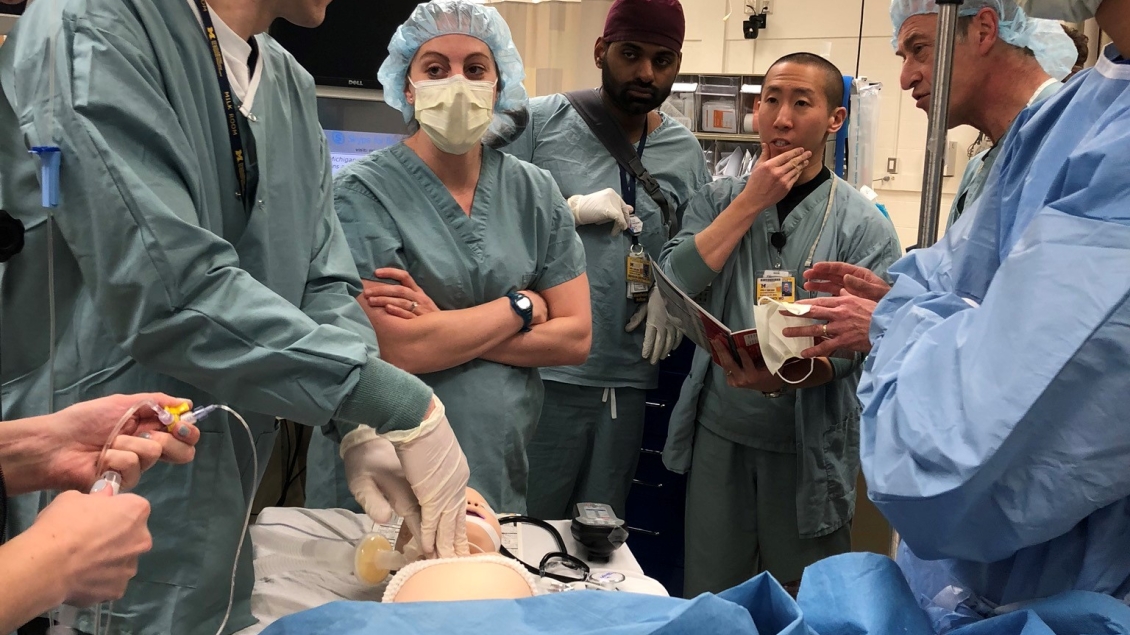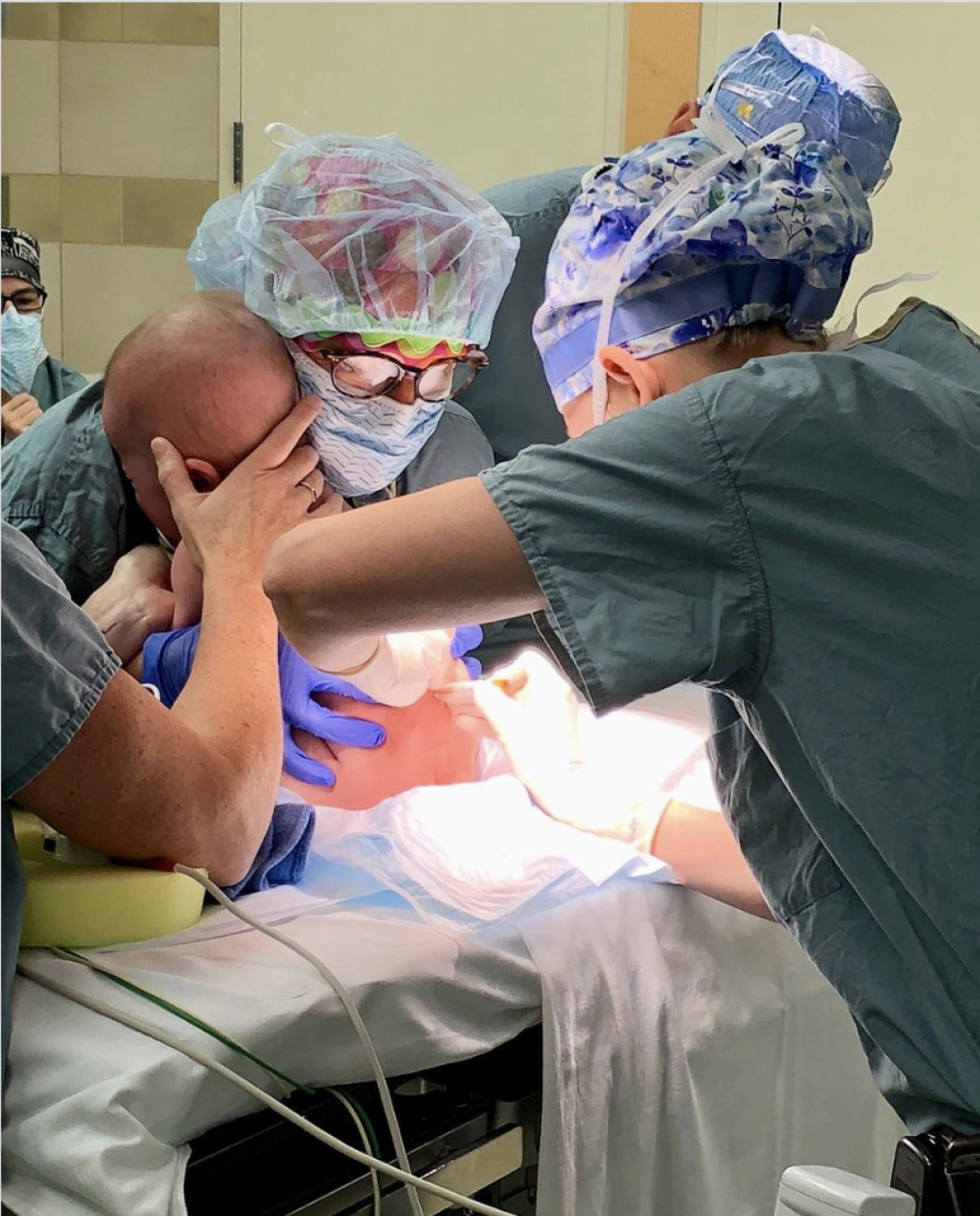
The fellowship curriculum offers a wide variety of exposure to all types of pediatric anesthesia cases while encouraging critical thinking and evidenced based practice. Fellows consistently exceed all ACGME minimums. Our curriculum strives to includes didactics, workshops, and group-based learning in order to explore all educational opportunities. These include:
- Daily Morning Lectures: High fidelity lectures delivered most mornings in the first two months cover common pediatric topics to develop a foundation for your clinical experience
- Wednesday Morning Fellow Meeting: Thirty-minute fellow-specific topics such as anesthetic considerations or pediatric anesthesia board-review questions, and oral exam review
- Departmental M&M/Visiting Professor Series: One-hour department-wide general anesthesia morbidity and mortality conference or visiting professor series offered every Thursday mornings
- Pediatric Anesthesia Multidisciplinary Conference/Pediatric Anesthesia and Pediatric Surgery Joint Conference: Pediatric anesthesia joins colleagues from other disciplines to discuss specific interests
- Fellowship Tutorial: Weekly hour-long lunch tutorials discussing pediatric anesthesia-specific topics that are both clinically and board-relevant
- Applied Exams Prep: Quarterly mock oral exams and additional oral board exam preparation offered, including OSCE prep through simulation
- Journal Club: Fellow-led journal clubs based on topics of interest relevant to pediatric anesthesia
- Faculty Mentorship: Fellow-chosen faculty mentors provide career, clinical, and boards mentorship throughout the fellowship
One of the strengths of our program comes from the wide variety of cases and clinical experience seen in the operating rooms, intensive care units, and inpatient locations. We anesthetize over 15,000 children per year, with over 700 cardiac and neonatal cases per year, from which our fellows’ educational experiences are prioritized.
Specific Rotations:
- General Pediatric Anesthesia
- Cardiac Anesthesia
- Neuroanesthesia
- Orthopedic Anesthesia
- ENT/Airway Anesthesia
- Vascular / Transplant Anesthesia
- Acute Pain and Regional
- Off-site Anesthesia
- Neonatal ICU
The University of Michigan has a state of the art simulation lab for trainees, which includes a full OR simulation for multiple scenarios. During the fellowship, we offer two unique courses for pediatric fellows. Led by Dr. Raza Zaidi and Dr. Liz Putnam, these courses help prepare our fellows to take the lead while managing patients.
- Managing Emergencies in Pediatric Anesthesia (MEPA) is a course offered to each fellow over two separate 4-hour simulation labs and implements simulation-based crisis management learning. (https://mepa.org.uk/)
- Simulation Saturday is an intensive day-long course incorporating high quality simulation experience in management of difficult airway and emergencies and preparation for clinical practice beyond fellowship.
During their fellowship, all fellows will rotate on the Pediatric Acute Pain Service for at least six weeks. Fellows will spend each week with our specialized pediatric pain faculty and nurses performing neuraxial anesthesia and peripheral nerve blocks for OR cases, rounding on postoperative patients after their procedures, and consulting on the care of pediatric patients with chronic pain. Highlights of our prolific program include:
Use of spinal anesthesia to avoid general anesthesia in pediatric patients is now considered the standard of care for select infraumbilical procedures at the University of Michigan, the only hospital in the state to routinely and proficiently offer this service for surgeons, families, and patients.

Specialized pediatric pain faculty perform a variety of single-shot and catheter-based techniques for neonates to teenagers undergoing general surgery, urology, orthopedic surgery, oral-maxillo-facial surgery, plastic surgery, cardiac surgery, and neurosurgery procedures.
Expert care of pediatric patients with both acute and chronic pain conditions in collaboration with surgical and medical services, palliative care, psychiatry/psychology, rehabilitation, and child-life specialists.
Collaborative initiative to improve the delivery of pain-related care to pediatric patients, focusing on identifying gaps in clinical care, developing meaningful and actionable measures, and launching quality trials to assess outcomes.
Dedicated pain and regional-specific bedside and formal teaching.
Availability of cutting edge equipment, including ultrasound machines, custom pediatric spinal anesthesia kits, echogenic needles, and a dedicated block system.
Discover the spaces where you'll train, learn and practice at the University of Michigan Medical School Department of Anesthesiology. As one of the largest training programs in the country, we provide unparalleled opportunities for our learners.